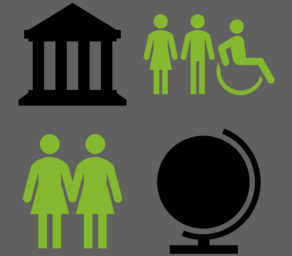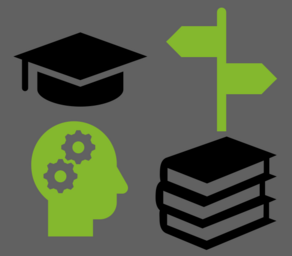Research areas
Language and cognition
Language has a determining influence on how we think, how we plan our actions and how we perceive the world. The main focus of the projects in this area is to find out how language influences on our mental concepts such as movement, space, and colour.
Spatial cognition
Spatial cognition refers to the effect of language on spatial perception. Speakers of different mother tongues depict different non-linguistic and linguistic behavior with respect to space and spatiality. Such behavioral differences can usually be attributed to grammatical differences in respective languages.
Speech pathology
Language is a fragile system. This becomes evident, when it is affected by diseases or speech disorders. In this research area, speech processing of speakers with Alzheimer’s, dementia, Down’s syndrome (Trisomy 21) or William-Beuren syndrome as well as of children with language-specific development disorder are investigated and compared.
First language acquisition & Second language acquisition
These projects examine how children acquire their mother tongue(s) or even other languages throughout their life. In the cases of second or foreign language acquisition, adults are also taken into consideration. The languages that a person acquires in his life span are not store separately, rather they are neuronally together interwoven and therefore influence on each other.
Bilingualism
In general, there are widespread prejudices in Germany against bilingualism and multilingualism. In bilingualism- related projects, the question is to invalidate these prejudices through empirically supported data. Bilingual speakers even in their childhood, exhibit cognitive advantages, which could also be seen in the non-linguistic tasks such as mathematic and can compensate for other disadvantages such as the social origin. Bilingual speakers have cognitive advantages, even in the childhood, which can also be seen in non-linguistic tasks, such as Mathematics, and can compensate for other disadvantages (for example, social origin).
Highly gifted
Inclusion at school is not only about involving students with disabilities or impairments in the learning processes, but also involving the highly gifted ones. The projects on this topic are concerned with for the first time creating psycholinguistic foundations that clarify the advantages arising from giftedness in mathematics and language.






